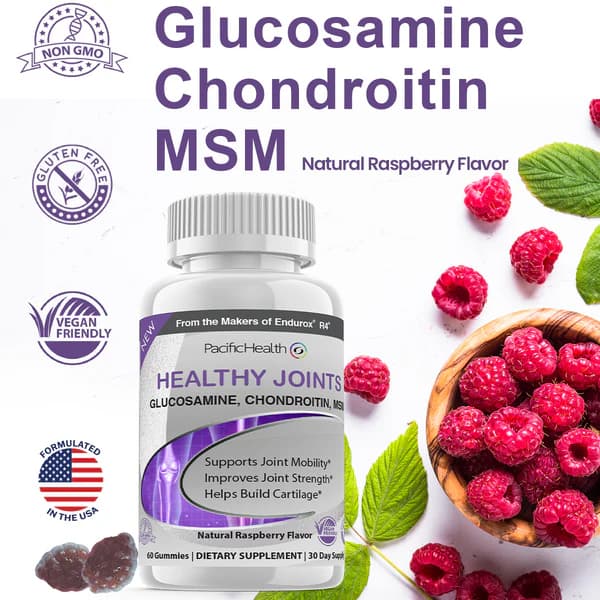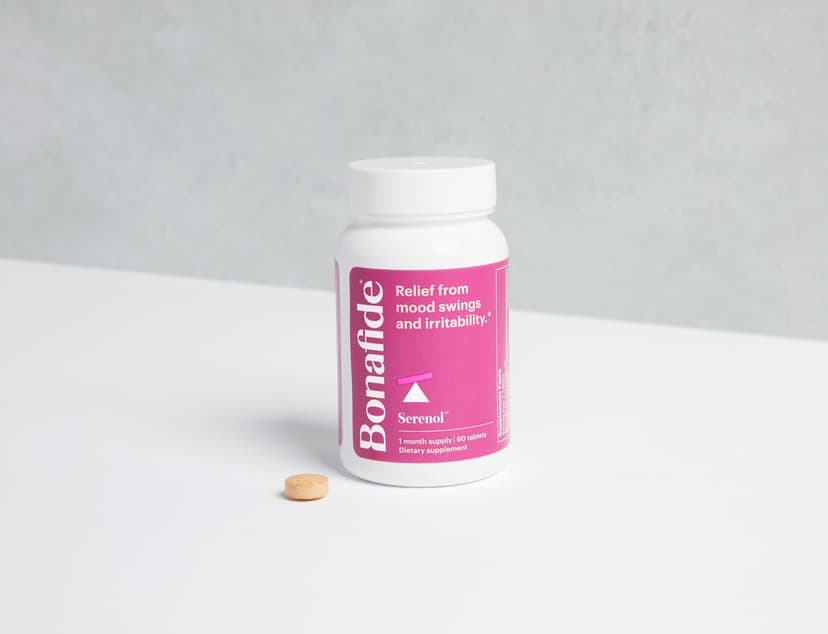Food sensitivities are becoming more common and can have a big impact on our daily lives. These sensitivities occur when our bodies react negatively to certain foods, leading to symptoms like stomach pain, fatigue, and skin problems. Understanding the link between gut health and food sensitivities can help us manage these reactions better. This article explores how our gut health affects food sensitivities and offers ways to improve both.
Key Takeaways
- Food sensitivities can cause a range of symptoms, including digestive issues, tiredness, and skin reactions.
- The gut microbiome, made up of trillions of microorganisms, plays a crucial role in how our bodies react to different foods.
- Leaky gut syndrome, where the gut lining becomes too permeable, can contribute to food sensitivities by allowing harmful substances to enter the bloodstream.
- Elimination diets and specific tests can help identify food sensitivities and guide dietary changes to reduce symptoms.
- A healthy diet rich in fiber, prebiotics, and probiotics can support gut health and may help alleviate food sensitivities.
Understanding Food Sensitivities
Definition and Types of Food Sensitivities
Food sensitivities are subtle and often overlooked reactions to certain foods. Unlike food allergies, which trigger an immediate immune response, food sensitivities cause small-scale inflammatory reactions in the gut. These reactions can be triggered by various food components, including additives and ultra-processed ingredients.
Common Symptoms and Health Impacts
The symptoms of food sensitivities can be wide-ranging and affect different parts of the body. Common symptoms include:
- Digestive issues like bloating, gas, and diarrhea
- Skin problems such as eczema and rashes
- Chronic joint pain
- Fatigue and brain fog
- Mood disturbances
If left unmanaged, these symptoms can lead to chronic inflammation and more severe health issues.
Differences Between Food Sensitivities, Allergies, and Intolerances
It's crucial to distinguish between food sensitivities, allergies, and intolerances:
- Food Allergies: Involve an immediate immune response and can be life-threatening. Symptoms include swelling, hives, and anaphylaxis.
- Food Intolerances: Do not involve the immune system and are usually related to digestive issues. Common examples include lactose intolerance and gluten intolerance.
- Food Sensitivities: Cause delayed, less obvious reactions and are often linked to chronic inflammation. They can affect various systems in the body, making them harder to diagnose.
The Role of Gut Microbiota in Food Sensitivities
How Gut Microbiota Interacts with Food Components
The gut microbiota interacts with food components in ways that can affect food sensitivities. For example, in celiac disease, certain gut bacteria can break down gluten, either increasing or decreasing its toxicity. Some strains of Lactobacillus can degrade gluten into smaller peptides, reducing the immune reaction. This suggests that adjusting the types of bacteria in the gut might help manage gluten sensitivity in celiac disease.
Impact of Dysbiosis on Food Sensitivities
Dysbiosis is an imbalance in the gut microbiome where harmful microorganisms outnumber beneficial ones. This imbalance can alter the immune system's tolerance to food antigens. A balanced microbiome helps the immune system distinguish between harmful pathogens and harmless food proteins. In contrast, dysbiosis can lead to heightened immune sensitivity and allergic responses. Infants with reduced gut microbial diversity are at a higher risk of developing food allergies.
Research Highlights on Gut Microbiota and Immune Function
Recent studies have shown that the gut microbiome plays a crucial role in immune system modulation. Approximately 70% to 80% of the body's immune cells are located in the gut. This high concentration highlights the gut's critical role in overall immunity and disease resistance. Researchers have found that changes in the gut microbiota can drive the development of food sensitivities by altering immune activation. Environmental factors, such as diet and antibiotic use, also influence the gut microbiota and subsequent immune function.
Leaky Gut Syndrome and Its Connection to Food Sensitivities
What is Leaky Gut Syndrome?
Leaky gut syndrome, also known as intestinal permeability, happens when the lining of the intestines gets damaged. Normally, this lining only lets nutrients pass into the bloodstream. But when it's compromised, harmful substances like toxins, undigested food, and bacteria can leak through. This can trigger an immune response, causing inflammation and various symptoms such as digestive problems, skin issues, and fatigue.
Mechanisms Linking Leaky Gut to Food Sensitivities
- Inflammatory Response: When the gut lining is more permeable, it can cause the immune system to react more strongly to certain foods, making food sensitivities worse.
- Intestinal Dysbiosis: An imbalance in gut bacteria can also contribute to leaky gut and food sensitivities. Some foods can change the gut bacteria balance, making the problem worse.
- Reinforcing the Gut Barrier: Identifying and avoiding trigger foods can help the gut lining heal. Eating a diet rich in fiber, prebiotics, and nutrients can also support gut health.
Managing Leaky Gut to Alleviate Food Sensitivities
- Comprehensive Approach: Work with healthcare professionals who specialize in gut health to get a complete treatment plan.
- Individual Variability: Everyone is different, so what works for one person might not work for another. Keeping a food and symptom journal can help identify personal triggers.
- Patience and Persistence: Healing takes time. Stick to a gut-friendly diet, manage stress, and address any underlying health issues for long-term relief.
Addressing leaky gut syndrome can significantly improve food sensitivities and overall well-being. By understanding and managing this condition, you can take proactive steps toward better health.
Diagnostic Approaches for Food Sensitivities
Elimination Diets
Elimination diets are a common method to identify food sensitivities. This approach involves removing suspected trigger foods from your diet for a period, then gradually reintroducing them one at a time. By monitoring your body's reactions, you can pinpoint which foods cause adverse symptoms. This method requires patience and careful tracking of food intake and symptoms.
IgG Antibody Testing
IgG antibody testing measures the levels of IgG antibodies in your blood in response to specific foods. Elevated levels of these antibodies may indicate a sensitivity to certain foods. While this test can provide useful insights, it's important to interpret the results with caution and in consultation with a healthcare professional.
Cellular Allergen Stimulation Tests (CAST)
Cellular Allergen Stimulation Tests (CAST) involve exposing your blood cells to potential allergens and measuring their response. This test can help identify food sensitivities by observing how your immune cells react to different foods. CAST can be a valuable tool, especially when combined with other diagnostic methods.
Identifying food sensitivities is crucial for managing symptoms and improving overall health. Combining different diagnostic approaches can provide a comprehensive understanding of your unique sensitivities.
Dietary Strategies to Support Gut Health
Foods to Include for a Healthy Gut
To support a healthy gut, it's essential to include a variety of foods that promote the growth of beneficial bacteria. Dietary fibers are crucial as they are not digested in the upper parts of the digestive system but reach the colon, where they become food for gut microbiota. Here are some key foods to include:
- Fruits and Vegetables: Rich in dietary fibers, vitamins, and minerals.
- Whole Grains: Such as oats, brown rice, and quinoa.
- Legumes: Beans, lentils, and chickpeas.
- Fermented Foods: Yogurt, kefir, sauerkraut, and kimchi.
- Prebiotic Foods: Garlic, onions, and asparagus.
Foods to Avoid to Reduce Food Sensitivities
Certain foods can exacerbate food sensitivities and should be limited or avoided. These include:
- Processed Foods: Often high in additives and preservatives.
- Refined Sugars: Can promote the growth of harmful bacteria.
- Artificial Sweeteners: May disrupt gut microbiota balance.
- Excessive Alcohol: Can damage the gut lining and alter gut bacteria.
Role of Prebiotics and Probiotics
Prebiotics and probiotics play a significant role in maintaining gut health. Prebiotics are types of fiber that feed beneficial bacteria, while probiotics are live bacteria that can provide health benefits. Including both in your diet can help maintain a balanced gut microbiota.
- Prebiotics: Found in foods like garlic, onions, and bananas.
- Probiotics: Found in fermented foods like yogurt, kefir, and sauerkraut.
A balanced diet rich in fibers, prebiotics, and probiotics can significantly improve gut health and reduce food sensitivities. By focusing on these dietary components, you can support your gut microbiome's ability to maintain overall well-being.
Lifestyle Factors Influencing Gut Health and Food Sensitivities
Impact of Stress on Gut Health
Stress can have a significant impact on gut health. When you're stressed, your body releases hormones that can disrupt the balance of your gut microbiota. This imbalance can lead to increased gut permeability, often referred to as leaky gut, which can exacerbate food sensitivities. Managing stress through techniques like mindfulness, meditation, and regular exercise can help maintain a healthy gut.
Importance of Regular Physical Activity
Regular physical activity is essential for maintaining a healthy gut. Exercise helps to increase the diversity of gut microbiota, which is crucial for a robust immune system. It also aids in digestion and can reduce inflammation, which is beneficial for those with food sensitivities. Aim for at least 30 minutes of moderate exercise most days of the week.
Sleep and Its Role in Gut Health
Quality sleep is vital for gut health. Poor sleep can disrupt the gut microbiota and increase inflammation, making food sensitivities worse. Aim for 7-9 hours of sleep per night to support a healthy gut. Establishing a regular sleep schedule and creating a restful environment can improve sleep quality.
Maintaining a balanced lifestyle with proper stress management, regular physical activity, and quality sleep can significantly improve gut health and reduce food sensitivities.
Emerging Therapies and Future Directions
Potential Gut Microbiota-Specific Treatments
Researchers are exploring treatments that target the gut microbiota to manage food sensitivities. These therapies aim to balance the gut bacteria, which can help reduce symptoms. One promising approach is fecal microbiota transplantation (FMT), where healthy bacteria from a donor are introduced into the patient's gut.
Advances in Probiotic and Prebiotic Research
Probiotics and prebiotics are gaining attention for their role in gut health. Probiotics are live bacteria that can provide health benefits, while prebiotics are fibers that feed these beneficial bacteria. Studies show that specific strains of probiotics can help alleviate food sensitivities. Prebiotics, on the other hand, support the growth of these beneficial bacteria, enhancing gut health.
Future Research Directions in Gut Health and Food Sensitivities
The future of gut health research is promising. Scientists are investigating the complex interactions between diet, gut microbiota, and the immune system. Personalized nutrition plans based on an individual's gut microbiota composition could become a standard approach to managing food sensitivities. Additionally, advancements in genetic and microbiome testing may offer more precise diagnostic tools and treatments.
Conclusion
In conclusion, the link between gut health and food sensitivities is becoming clearer with ongoing research. Our gut microbiota plays a crucial role in how our bodies react to different foods. When the balance of these microorganisms is disrupted, it can lead to food sensitivities and other health issues. By understanding and maintaining a healthy gut, we can potentially manage or even prevent these sensitivities. Simple changes like eating a balanced diet rich in fiber, prebiotics, and probiotics can support gut health. As science continues to uncover more about this connection, it becomes increasingly important to pay attention to our gut health for overall well-being.
Frequently Asked Questions
What are food sensitivities?
Food sensitivities happen when your body reacts negatively to certain foods. These reactions can cause symptoms like stomach pain, tiredness, and skin issues. They are different from food allergies and intolerances.
How do food sensitivities differ from food allergies and intolerances?
Food sensitivities involve the immune system but are not as severe as allergies. Allergies can cause life-threatening reactions, while intolerances usually affect digestion and don't involve the immune system.
What is leaky gut syndrome?
Leaky gut syndrome is when the lining of your intestines gets damaged, allowing harmful substances to enter your bloodstream. This can lead to inflammation and food sensitivities.
How can I find out if I have food sensitivities?
You can identify food sensitivities through elimination diets, IgG antibody testing, and cellular allergen stimulation tests (CAST). These methods help pinpoint which foods are causing your symptoms.
What foods should I eat for a healthy gut?
To support gut health, eat foods rich in fiber, like fruits and vegetables. Fermented foods like yogurt and kefir are also good. Avoid processed foods high in sugar and unhealthy fats.
Can stress affect my gut health?
Yes, stress can negatively impact your gut health. It can disrupt the balance of good bacteria in your gut and make symptoms of food sensitivities worse. Managing stress through activities like exercise and meditation can help.


















